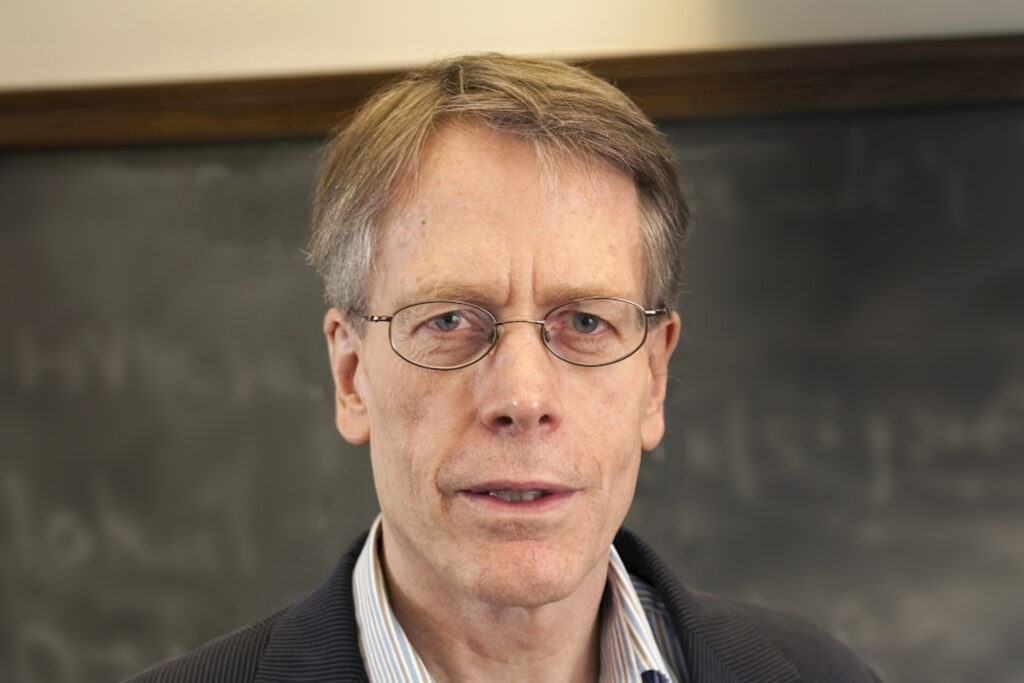Uncertainty in Our Scientific Inputs Into Policy: Disguise It or Embrace It?
A Conversation With Lars Peter Hansen
Date: Thursday, Oct. 17, 2024
Time: 6 p.m. ET
Location: North Ballroom, Purdue Memorial Union
Nobel laureate Lars Peter Hansen, the David Rockefeller Distinguished Service Professor in Economics and Statistics at the University of Chicago, shared the Sveriges Riksbank Prize in Economic Sciences in Memory of Alfred Nobel in 2013 with University of Chicago colleague Eugene Fama and Robert Shiller of Yale University.
The three were recognized for their groundbreaking research on the workings of financial markets, asset prices and behavioral economics. The Nobel committee said the work by Hansen, Fama and Shiller “laid the foundation for the current understanding of asset prices.”
A leading expert at the forefront of economic thinking and asset-price modeling, Hansen has drawn on his background in math and statistics. He has contributed to the development of statistical methods designed to explore the interconnections between macroeconomic indicators and assets in financial markets — methods now widely used in empirical research in financial economics.
His early research in econometrics was aimed at developing time series statistical methods to investigate one part of an economic model without having to fully specify and estimate all the model ingredients. The applications he explored with several coauthors — such as Kenneth Singleton, Scott Richard, Robert Hodrick and Ravi Jagannathan — included systems that are rich enough to support models of asset valuation and to identify and clarify empirical puzzles, where real-world financial and economic data were at odds with prevailing academic models.
Over the last several years, Hansen, Nobel laureate Thomas Sargent and their coauthors have developed methods for modeling economic decision-making in environments in which uncertainty is hard to quantify. They initially explored the consequences for models with financial markets, characterizing environments in which the beliefs of economic actors are fragile. In his most recent work, Hansen and coauthors investigated uncertainty implications for the design of prudent climate and other economic policies.
Hansen is a fellow of the National Academy of Sciences and the American Finance Association and also is a member of the American Academy of Arts and Sciences and past president of the Econometric Society. He is a member of the Hong Kong Institute for Monetary and Financial Research Council of Advisers for Applied Research, as well as the CME Group Competitive Markets Advisory Council.
In addition to the Nobel prize, Hansen won the 2010 BBVA Foundation Frontiers of Knowledge Award in Economics, Finance and Management; the CME Group-MSRI Prize in Innovative Quantitative Applications in 2008; and the Erwin Plein Nemmers Prize in Economics from Northwestern University in 2006. Hansen and Singleton, a Stanford University economist, were awarded the Econometric Society’s Frisch Medal in 1984 for their paper, “Generalized Instrumental Variables Estimation of Nonlinear Rational Expectations Models.”
Born in Urbana, Illinois, Hansen studied at Utah State University, where his father was a biochemistry professor. He received his PhD from the University of Minnesota in 1978, worked at Carnegie Mellon University in Pittsburgh from 1978-81, and then moved to the University of Chicago, where he has worked ever since.
